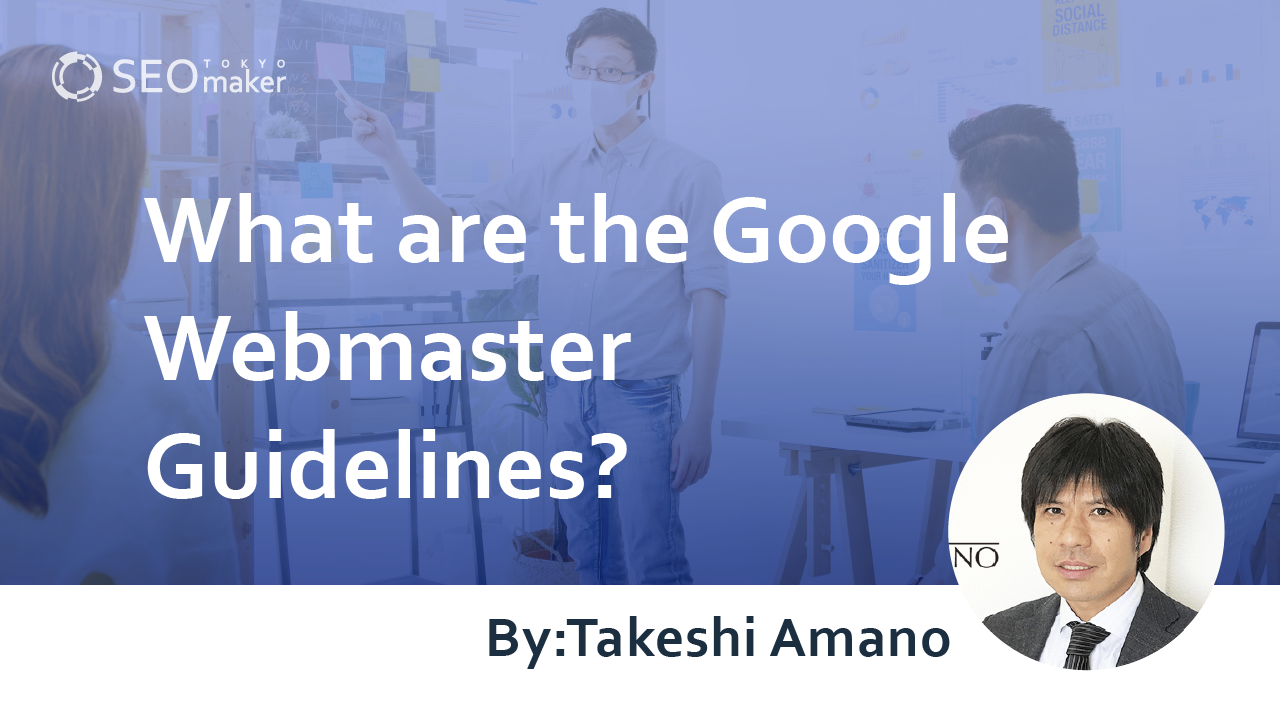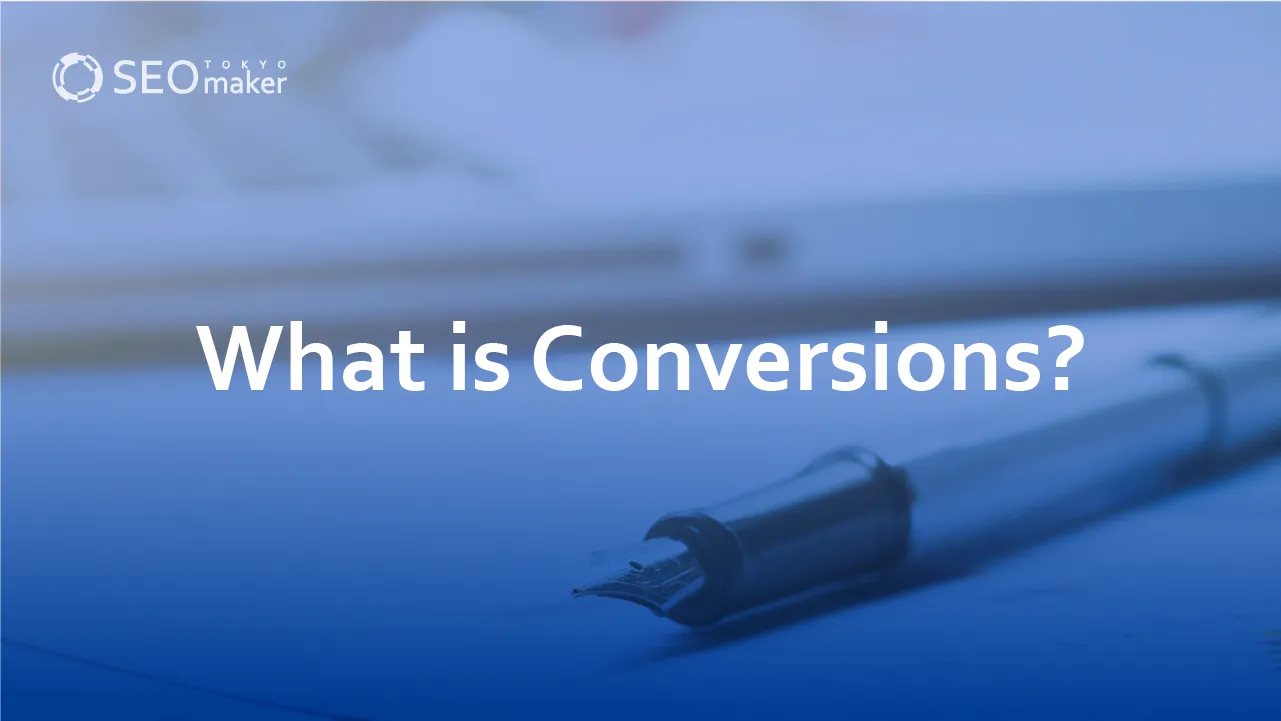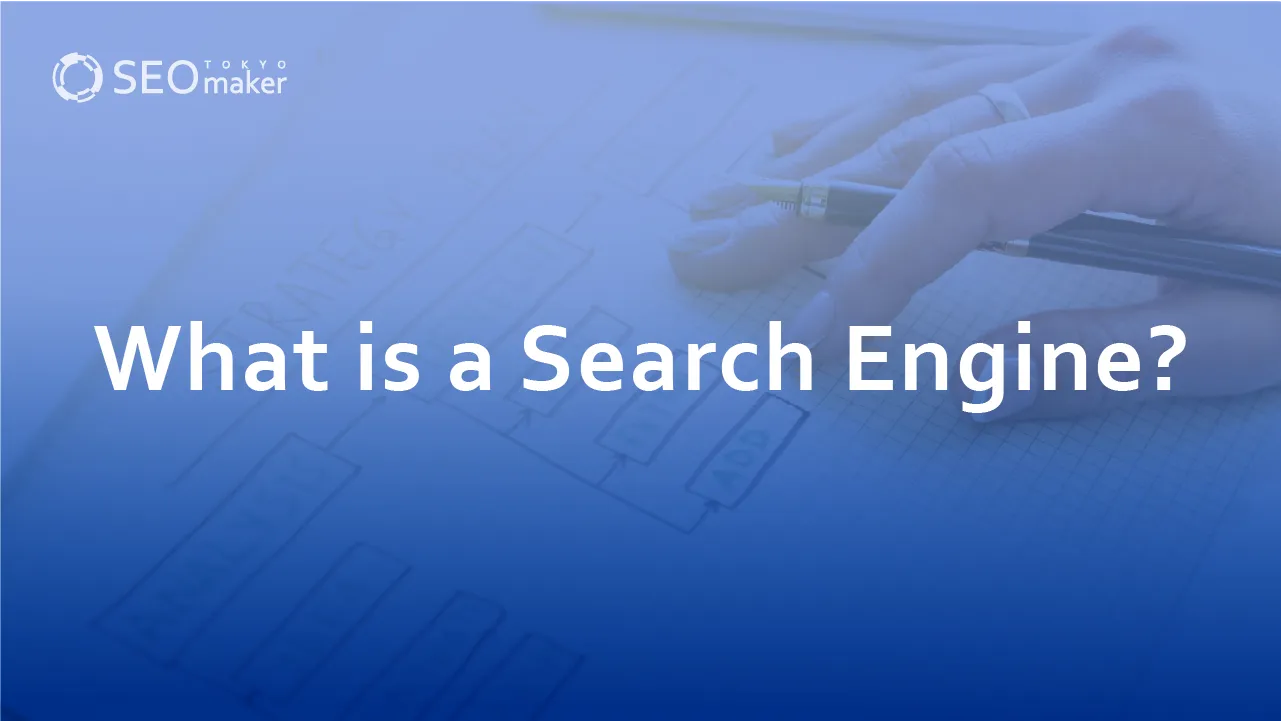What are the Google Guidelines? : For Webmaster
contents

The ‘Google Webmaster Guidelines‘ are essentially a manual for how to display your site on Google’s search engine.
These guidelines contain numerous tips for achieving higher rankings. Therefore, understanding the key points of these guidelines is crucial for effective SEO. Before starting SEO, make sure to review these guidelines thoroughly.
In this article, we provide a clear explanation of the Google Webmaster Guidelines for beginners.
What is Webmaster Guidelines?
Webmaster Guidelines refers to the rules documented by Google for displaying a website on its search engine.
These guidelines provide the basics of how to get your site properly evaluated by Google and include effective SEO tips.
Google indexes hundreds of thousands of pages daily, but sites that do not follow these guidelines might not be detected properly and their content might not be adequately evaluated.
Thus, it’s important to understand what is crucial for displaying your site on Google and how to get properly evaluated, all of which are outlined in the “Webmaster Guidelines.”
The guidelines are primarily divided into two categories
Google’s Webmaster Guidelines can be broadly divided into the following two categories.
-General Guidelines
-Quality Guidelines
General Guidelines
These provide tips on making your site easily discoverable by Google’s crawlers and methods for getting displayed in search results.
They help enhance the crawlability, ensuring that Google understands your web pages, which is essential for getting indexed and subsequently appearing in search results.
Quality Guidelines
These detail the violations of Google’s rules, including deceptive redirects, low-quality content, paid links, and plagiarized content. These are considered violations of Google’s guidelines and are explained as techniques that provide no value to users and could be detrimental.
Such sites may be removed from the search listings upon detection.
Features of the Webmaster Guidelines
The Webmaster Guidelines are periodically updated. With continuous updates to Google’s algorithms, it’s important to regularly check the guidelines for any changes.
The content changes regularly
The Webmaster Guidelines are regularly updated.
For instance, in July 2022, updates were made regarding how page headers, titles, text references, and textual content updates affect Google’s search rankings. In August, documents related to technologies like Silverlight and Flash were removed, and recommended practices for follow functions were added.
As such, the Webmaster Guidelines are frequently updated. You can check the update history and the latest information on Google Search Central to stay informed about the latest updates and additions.
They have a significant impact on search rankings
The Webmaster Guidelines are essentially the rules that establish the criteria for search rankings.
Therefore, they have a significant impact on search rankings.
Google’s guidelines state that affiliate sites without added value are promptly removed once verified they are not hacked. Violating Google’s guidelines can significantly drop your rankings and, in the worst case, result in content removal.
Conversely, if you adhere to the quality guidelines and effectively demonstrate usefulness to users and differentiation from competitors, your site is likely to be positively evaluated.
Key Points in the General Guidelines
Here are essential points to consider in the general guidelines.
-Improve crawlability
-HTTPS (SSL implementation)
-Clear URL structure
-Avoid duplicate content
-Mobile-friendly
-Remove ads
-Do not block important pages from being crawled
Enhance Crawlability
The most important aspect to display your site in Google’s search results is getting your site indexed by Google. This requires facilitating site crawling by Google’s robots, which can be requested through Google Search Console, provided you have a sitemap in place.
A sitemap enhances crawling efficiency and helps ensure that content across your pages is accurately recognized and indexed.
Additionally, pages that are easily detected by crawlers have links to authoritative and reliable data, and their content hierarchy and persona names are properly set.
Crawlers detect countless pages every day. To make it easier for crawlers to find your pages, ensure they are set up in an understandable manner (=crawlability).
HTTPS (SSL Encryption)
Switch to HTTPS for secure communication and enhance your website’s security with ongoing SSL. Websites are susceptible to global attacks, and it’s crucial to safeguard your site and reassure users by using HTTPS.
Making URL Structure Easier for Crawlers to Find It
Ensure your URL structure is straightforward, making it easier for crawlers to find. Avoid overly complicated or niche URLs. URLs should be simple enough that users can guess the content just by looking at them.
Recommended: What are effective URLs for SEO? Explaining Google’s recommended points for URL structure.
Avoiding Duplicate Content
Google penalizes websites for duplicate content that is merely modified by changing conjunctions or minor words from other sites.
While some similarities between numerous websites are unavoidable, content that is too similar can negatively impact search rankings. Creating unique titles can help differentiate your site from others, so strive to enhance the originality of your content.
Recommended: Explaining the impact of duplicate content (duplicate URLs) on SEO and how to address it.
User Convenience
More people are browsing the internet on mobile devices than on computers. Consider the convenience of both types of users by ensuring your site is easy to navigate and uses appropriate font sizes. Mobile-friendliness is also discussed.
Removing Ads
Eliminating ads that interfere with content improves user convenience. Removing ads is effective as it prioritizes the user-first approach.
Similarly, removing malicious content or making content easier for users to access can achieve the same effect.
Do Not Block Important Pages from Crawling
For crawlers to find and index your pages, it’s crucial not to block them. For instance, using robots.txt to restrict crawling can be effective for SEO in some cases. However, if you inadvertently block important pages, they won’t be found by crawlers and will not appear in search results. Care must be taken when setting crawl restrictions.
Key Points to Cover in the Quality Guidelines
Here are four key points to cover in the quality guidelines.
-Deceptive practices intended to manipulate rankings.
-Placing links that users cannot see.
-Copying and pasting content from other sites.
-Overuse of irrelevant keywords.
Google emphasizes a user-first approach and consistently advocates for considering user convenience.
Related Article: Why is a user-first approach necessary for SEO?
This is evident in the quality guidelines, which outline what not to do to protect users.
Deceptive Practices to Manipulate Rankings
The buying and selling of backlinks with the intent to manipulate rankings is a violation of the guidelines. Even if you purchase backlinks, unless they come from reputable and influential sites, they won’t be as effective as expected. Acquiring a few backlinks won’t necessarily result in higher rankings. Participating in link schemes and buying or selling links that pass PageRank is prohibited.
Placing Hidden Links
Using text colors that blend with the background to hide links or deliberately placing links in areas where users can’t easily see them is against the guidelines.
Such violations can significantly lower your search rankings. Besides focusing on content, ensure that your entire site is designed with user convenience in mind.
Copying and Pasting Content from Other Sites
Copying and pasting content from other sites is not valuable to users and can lead to copyright infringement claims. Just because content is available on the web does not mean it can be duplicated without permission.
Overuse of Irrelevant Keywords
Overusing keywords to boost rankings is ineffective and can actually cause your rankings to drop. Content that appears unnatural and is filled with unnecessary keywords is not considered high quality. If the content seems unnatural to you, it likely needs revision.
Summary
The Google Webmaster Guidelines are essential for anyone involved in content creation, not just for SEO purposes. The guidelines cover extensive content, which might seem overwhelming, but they are crucial for creating valuable content for users. Beginners might benefit from first reading “What is SEO? [Latest SEO Guide]” to better understand the basics before delving into the guidelines. Creating user-friendly content requires understanding these guidelines. While the guidelines are extensive, focusing on the key points can significantly aid in content creation. If you’re already doing SEO but not seeing results, or if you’re unsure where to start, reviewing the Webmaster Guidelines can provide clarity and direction.










![What is a Description? Explaining the Meaning, Writing Style, and Changing Word Count – [2023 Edition]](https://www.switchitmaker2.com/en/wp-content/uploads/2024/09/what-is-description.webp)










